How YOUR High Street pharmacy could be forced to close shop – desperate stories reveal workers on the brink of collapse: ‘My last day off was for my son’s funeral two years ago’
High street pharmacies are on the brink of collapse, according to a damning report on the ‘critical’ pressures facing teams today.
A survey in England into staffing levels and morale in the sector found that 9 in 10 team members struggle to cope with workload.
Seven in ten pharmacy owners also regularly report staff shortages, with a tenth forced to close temporarily, according to the research by industry body Community Pharmacy England (CPE).
One owner told MailOnline how he was so overwhelmed he hasn’t been able to take a day off for more than three years.
Even then, the last break he had was a single day before his 23-year-old son’s funeral.
Others have been attacked, with objects thrown at them or even punched amid rising patient aggression, with incidents recorded almost every week.
One owner, Anil Sharma (pictured), told MailOnline he has been attacked, beaten and had objects thrown at him amid rising patient aggression, with incidents recorded almost every week
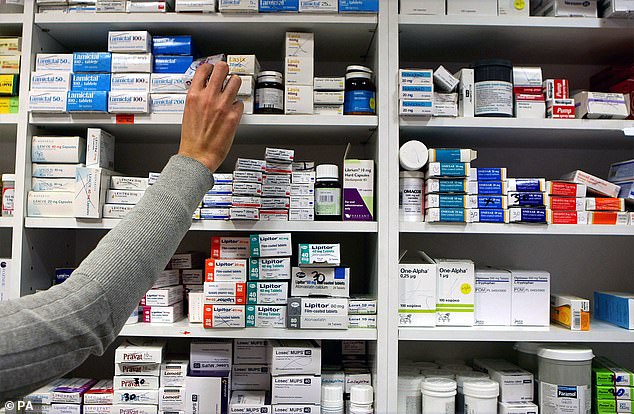
A survey in England into staffing levels and morale in the sector found that nine in 10 team members struggle to cope with workload
The damning report comes after it emerged that the number of pharmacies in England is now at its lowest level in almost two decades, with an average of seven of these essential services closing every week.
There are fears that workplace pressures and aggression from frustrated patients could exacerbate this trend, creating a domino effect as the remaining pharmacies have to catch up.
Industry leaders branded the findings as ‘deeply worrying’ and called on the government to urgently address the sector’s workforce shortages and ‘critical funding constraints’.
The Pharmacy Pressures Survey for England surveyed more than 900 owners – representing more than 6,100 individual premises in England – and 2,000 employees.
More than three-quarters admitted that the pressures of their work had affected their mental health.
More than eight in ten respondents (86 percent) say that staff shortages have resulted in longer waiting times for patients receiving medication or advice.
Nearly two-thirds (62 percent) also reported staff shortages, which also forced them to reduce the services they offer.
‘Staff pressure and morale in community pharmacies are at an all-time low. This is pushing companies towards the abyss,” the report concludes.
An anonymous owner, who has been running his pharmacy in Rotherham for seven years, told MailOnline he has only taken one day off this year – his mother’s funeral earlier this month.
Tragically, the 59-year-old’s last day off in 2021 was – the day of his 23-year-old son’s funeral.
On both occasions, he said, he could not even afford to take bereavement leave because he was unable to pay the high rates demanded by the locums.
He told MailOnline: ‘I just really want things to change. I haven’t even had time to mourn my son. I just run on a steady treadmill.
“I would just love a good night’s sleep, I would really love that.
He added: “I have had to put our expenses on several credit cards to stay afloat. I have a debt of £25,000.
‘Despite things being as bad as they are now, there seems to be no sign of things getting better.
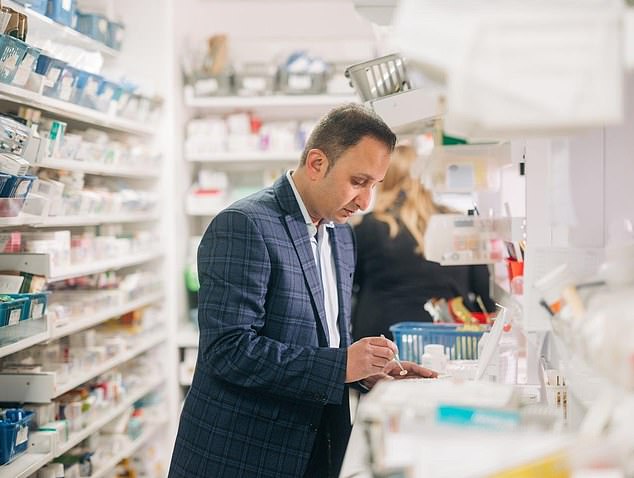
Anil Sharma (pictured), who runs eight pharmacies in Cambridgeshire, Hertfordshire and Suffolk, says his teams encounter this abuse almost every week, but it is rarely reported to the police.
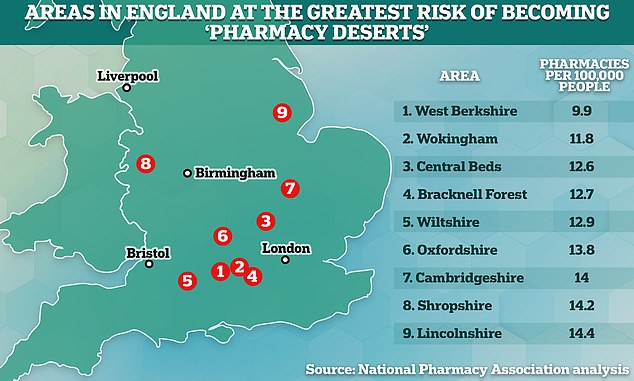
“I’ve thought about closing, but I want to be in a position where my loans are paid off before I do.”
Pharmacy owners are currently being put to a vote by the National Pharmacy Association (NPA) on possible work-to-rule actions, amid a row over funding with the government.
Campaigners say the financial problems started with the new national contract in 2015 – which has significantly reduced NHS pharmacy revenues and has not been adjusted for inflation or rising staff and fuel costs.
The NPA is not a union, so any outcome of the vote would be advisory.
But if supported, the NPA says the move – which will start before Christmas – could see pharmacies open for shorter periods or potentially provide fewer services, such as emergency contraception or the withdrawal of free deliveries for medicines.
Yet the anonymous owner told MailOnline that he could not afford to take part in any promotion.
“As it is now, I can’t make ends meet, my income can’t drop any further,” he said.
‘Pharmacies are way down the pecking order. We’re not even considered important.”
Meanwhile, another pharmacy owner said he was attacked, beaten and even had medicine bottles thrown at him amid growing aggression from patients.
Anil Sharma, who runs eight pharmacies in Cambridgeshire, Hertfordshire and Suffolk, says his teams deal with abuse almost every week.
He told MailOnline: ‘We have had two incidents in the last two weeks alone.
‘It is mainly people who are annoyed that their medication is not ready.
“Medicine isn’t ready yet for so many reasons: you can’t get medicine or you’re a week behind on filling prescriptions because so many of your staff members have left.
‘But people don’t care if they are sick. They want their medicine. We have stopped reporting incidents to the police.
He explained that this was due to both the paperwork and a lack of results.
“We don’t have time and we don’t take patients to court because they are patients, they are sick.”
Record staff shortages, which left him unable to recruit skilled workers for more than 18 months, also left Mr Sharma and his wife ‘each working 100 hours a week, sometimes at night’ to ensure the business stayed afloat.
He said: “The pharmacy workforce has been decimated to unprecedented levels.
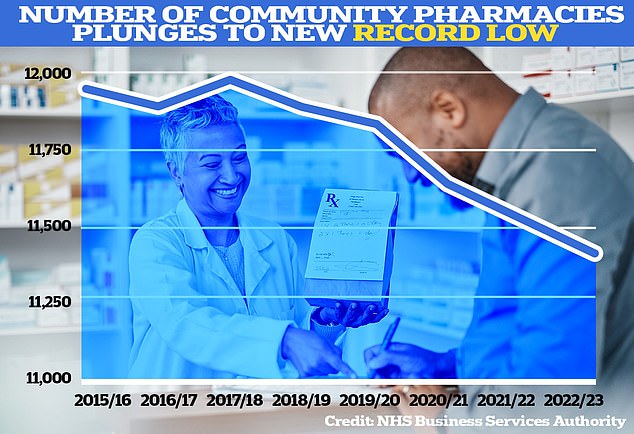
Data from the NHS Business Services Authority, published in October, shows that just 11,414 community pharmacies remained in England in the 2022/2023 financial year
‘I have been working in pharmacy for 25 years and have never known such pressure. It’s a perfect storm. It’s a national scandal.
‘There have been weeks in which we worked all night to keep up to date with the benefits in kind, causing people to wait too long.
‘At the end of the day it’s our business. We pour our savings into these companies and if we can’t keep them afloat and all the patients leave us, we’re out of business.
‘It has had a huge impact on my life.’
Commenting on the survey results, CPE Chief Executive Janet Morrison said: ‘We are deeply concerned about staff wellbeing and the negative impact the current pressures are having on both the mental health of community pharmacy staff and patient care .
“Community pharmacy teams are working non-stop to protect their patients and local communities, but a dysfunctional workforce does not support the delivery of high-quality patient care.
‘When pharmacy staff are overworked, understaffed, harassed and face significant stress, this negatively impacts their ability to meet patient needs.
‘If we are to fully utilize the clinical skills of community pharmacists and their teams, we must address these workforce shortages, as well as the sector’s critical funding constraints and capacity issues.’
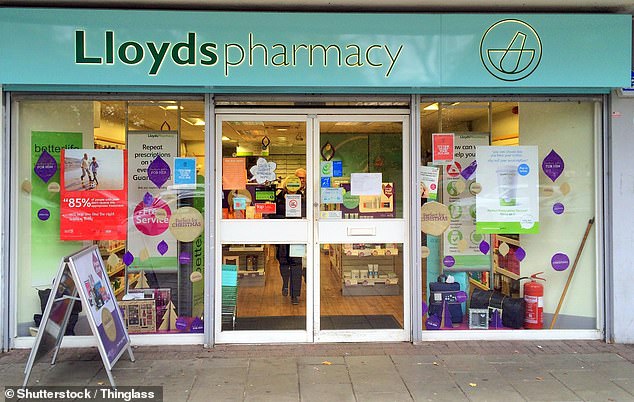
Boots has closed branches en masse in recent months, while LloydsPharmacy has closed its doors completely. Pictured: A former LloydsPharmacy store in Bracknell, Berkshire
Paul Rees, chief executive of the NPA, also told this website: ‘This report rightly highlights the significant workload and challenges facing community pharmacy as a result of the impact of a decade of underfunding.
‘Pharmacies are having to cope with significantly increased workloads due to increased demand, whilst at the same time dealing with funding cuts and recruitment difficulties.
‘This is pushing many to the brink, with a record number of pharmacies closing in the past year and others taking drastic measures to stay open.
‘To tackle this, the Government must provide community pharmacies with a new funding deal that will halt closures and allow pharmacies to cope with increasing demand.’
In August, the NPA also warned that the number of pharmacies in England is now at its lowest level in almost two decades, with an average of seven closures per week.
Since 2015, more than 1,500 have closed their doors, leaving just 10,054 open.
At this rate, numbers could fall below 10,000 for the first time since 2005, when there were 9,872.
Boots has closed branches en masse in recent months, while LloydsPharmacy has closed its doors completely.
